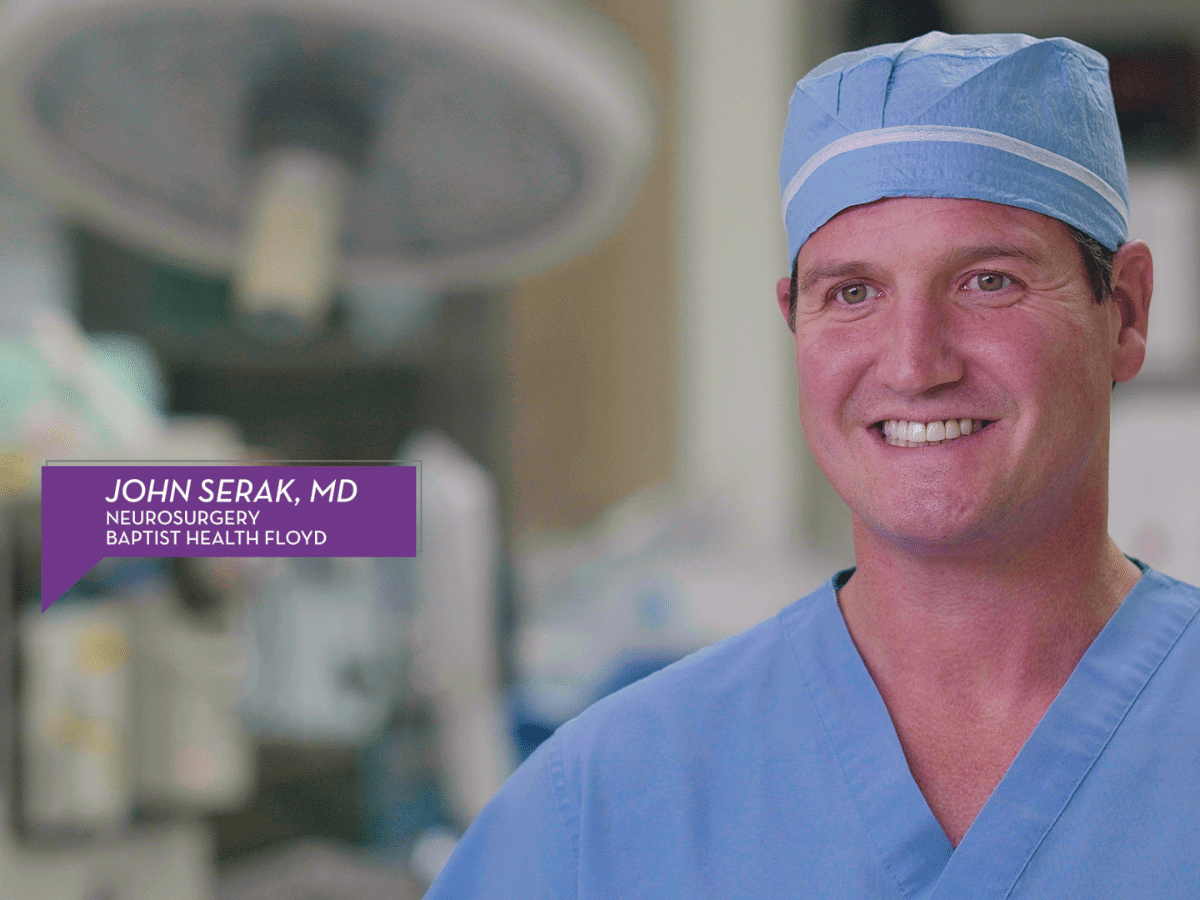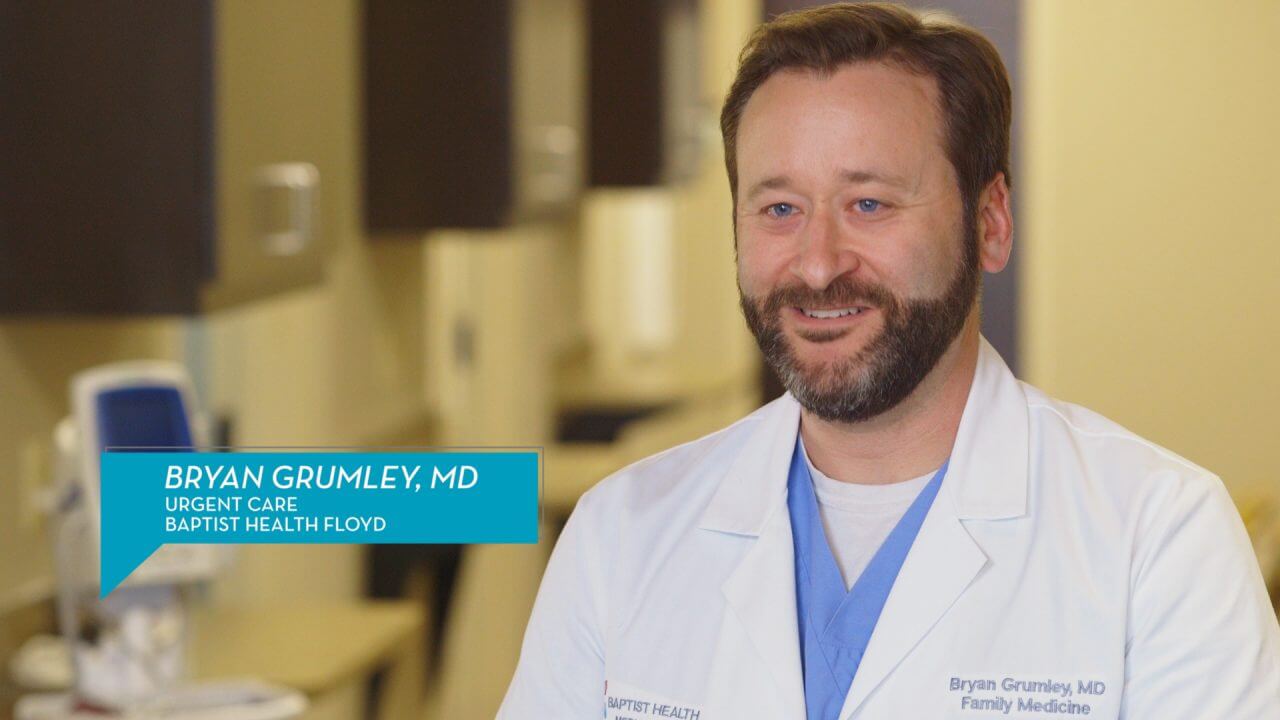Treating Gastroesophageal Reflux Disease
Baptist Health Floyd: Treating Gastroesophageal Reflux Disease
Surgeon John Clayton, DO, explains how he uses the minimally invasive TIF procedure to create a new valve, relieving chronic heartburn in patients with GERD.
Treating Gastroesophageal Reflux Disease Health Talks Transcript
John D. Clayton, DO, General Surgery
GERD is a condition where the valve at the end of the esophagus, where it hooks into the stomach, does not function properly. So, when people eat, they lie down, they bend over, whatever is in their stomach comes back into the esophagus. And, because the stomach has acid, most people experience what they consider (to be) heartburn.
Christine Kahl, New Albany, Indiana
It really burns, and at times you can almost feel like you’re having a heart attack, and you just cannot get any relief from it.
Dr. Clayton
We usually have them start pharmaceutical therapy. The problem is that the class of drugs used now, called proton-pump inhibitors, when people take them long term, they have significant side effects.
Kahl
I was on several medications, all of which weren’t doing the trick, obviously. I was on high doses. Medications, for every good thing they do, there are bad things, too.
Dr. Clayton
There are a number of people who come in wanting to get off their medicines. To do that, they have to have a valve made. The TIF procedure, T-I-F, stands for “transoral incisionless fundoplication.” Now, a fundoplication is the creation of a new valve where one is faulty. The TIF procedure is an endoscopic valve where we go down through the esophagus. If someone does not have a hiatal hernia, there are no incisions required. So, that’s the biggie, somebody with no hiatal hernia doesn’t need any incisions.
Kahl
Oh, I feel wonderful. I sleep. I don’t even have to be anxious about “Oh gosh! I wonder how tonight’s going to be.” I don’t have to worry about it anymore.
At Baptist Health Floyd, we offer inpatient and outpatient services 24 hours a day, seven days a week.



